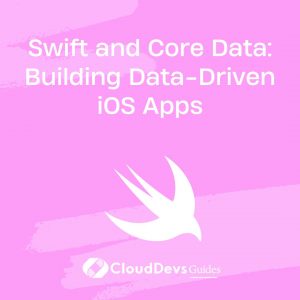How to use Swift for iOS app development?
You can absolutely use Swift for iOS app development. In fact, Swift has become the preferred and recommended programming language for building iOS, macOS, watchOS, and tvOS applications by Apple itself. Since its introduction in 2014, Swift has gained widespread popularity in the iOS development community due to its numerous advantages.
Swift offers several benefits for iOS app development:
- Modern and Readable Syntax: Swift has a clean and modern syntax that is easy to read and write, making it more approachable for both new and experienced developers. This readability contributes to code quality and maintainability.
- Safety Features: Swift incorporates safety features such as type inference, optionals, and Automatic Reference Counting (ARC), which help prevent common programming errors and reduce the risk of crashes and memory leaks.
- Performance: Swift is designed for high performance and often delivers comparable or better performance than Objective-C. It achieves this while providing enhanced safety features.
- Interoperability: Swift is fully interoperable with Objective-C, which means you can use both languages within the same project. This makes it easier to transition from existing Objective-C codebases to Swift, allowing developers to adopt the language incrementally.
- Rich Ecosystem: Swift benefits from a growing ecosystem of libraries, frameworks, and tools that support iOS development. Apple’s official development environment, Xcode, fully supports Swift, offering a seamless and efficient coding experience.
- Community Support: Swift has a vibrant and active developer community, with a wealth of online resources, tutorials, and forums available for developers. This makes it easier to find help and resources when working with the language.
Swift is the preferred choice for iOS app development, offering a modern, safe, and efficient programming language that empowers developers to create high-quality applications for Apple’s ecosystem. Whether you’re starting a new project or considering migrating from Objective-C, Swift provides numerous advantages that make it a top choice for iOS development.







